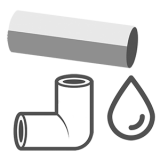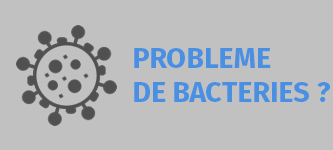| » » » » |
Que recherchez-vous ?
Filter bags for industry: the cost-effective solution for liquid filtration.
Polypropylene filter bags have become a popular method for filtering liquids containing a large number of solid or gelatinous particles in various industries such as pharmaceutical chemicals, beverages, food and cosmetics. Pockets are made from 100% polypropylene, polyester or mono-filament nylon fibers. They are also made without glues or resins, ensuring consistently high quality and performance.
The materials used comply with NSF and FDA regulations regarding food contact under CFR21, section 177.1520. PENTEK® filter bags offer high chemical compatibility, making them suitable for many applications.
How do polypropylene filter bags work?
The liquid filtration process using filter bags works like a depth filter and provides very economical filtration. It is particularly recommended for filtering liquids with a large number of solid or gelatinous particles. Their main advantage is their high particle retention capacity and high flow rate.
It is important to note that the filtration data provided is representative of the performance observed during tests carried out in a controlled laboratory. They are not considered warranties, specifications or instructions for use. Specific performance can vary widely depending on contaminant type, fluid properties, flow rates and environmental conditions. Therefore, it is recommended that users conduct preliminary tests to determine which product is best suited to their needs.
Advantages of filter bags in industrial filtration.
Bags offer many advantages for the filtration of liquids in industrial processes.
Installing a filter bag is a simple process that can be easily accomplished by following a few steps. First, make sure the filter housing is clean and free of debris. Then remove the old filter bag and dispose of it properly. Next, inspect the filter housing and make sure it is in good condition.
Once you have checked the housing, install the new filter bag by placing it inside the housing and pulling the top of the bag over the clamp or support ring. Make sure the bag is centered in the slot and the clamp or support ring is in place. Then tighten the clip or snap ring to secure the bag in place.
It is important to note that proper installation of the filter bag is crucial to ensure effective filtration. Improper installation can lead to leaks, bypass and reduced filtration efficiency. Therefore, it is recommended to follow the manufacturer's instructions and guidelines for the installation of filter bags.
What is the micron rating of filter bags?
The micron rating of filter bags is a measure of the size of the filtration pores in a filter. It indicates the size of solid particles and impurities that will be filtered out. Filters with a lower micron rating have smaller pores, which means they can filter out smaller particles. The pouches are made from 1 micron to 100 micron polypropylene and 150 and 300 micron washable nylon.
How to choose the right filter bag for your application ?
Filtration is a crucial process to ensure product quality and purity in many industries such as chemical, food and beverage, pharmaceutical, etc. Filter bags are widely used in these industries to filter liquids and gases. However, choosing the right filter bag for a specific application can be difficult as there are many types of filter bags available on the market. In this article, we will guide you in choosing the right filter bag for your application.
Types of filter bags
There are several types of filter bags available for the industry, each with different features and benefits depending on the applications.
Here are the most common types:
- Felt filter bags: These are made from synthetic or natural fibers and are used to filter solid particles. They are often used in the chemical and water treatment industries.
- Mesh filter bags: These are made from materials such as nylon and are used to filter larger particles. They are often used in the food and beverage industries.
- Activated Carbon Filter Bags: These are used to remove unpleasant odors and flavors from liquids. They are often used in the food and beverage industries.
- Plastic filter bags: They are used to filter corrosive and aggressive liquids. They are often used in chemical industries.
Construction materials
The choice of materials of construction for a filter bag depends on the nature of the liquid or gas to be filtered and the temperature and pressure of the application.
Commonly used materials of construction for filter bags are:
- Polyester: Suitable for low temperature and low pressure applications.
- Polypropylene: Suitable for medium temperature and pressure applications.
- Nylon: Suitable for high temperature and pressure applications.
- PTFE (Teflon): Suitable for high temperature and pressure applications and for corrosive liquids.
Filter bags offer an economical and efficient solution for filtering liquids in various industries such as food and beverage, chemical and pharmaceutical industries, cosmetics, galvanic industry and waste water treatment. Their wide range of porosities, high retention capacity and chemical compatibility make them an ideal option for many types of liquid filtration.






































































